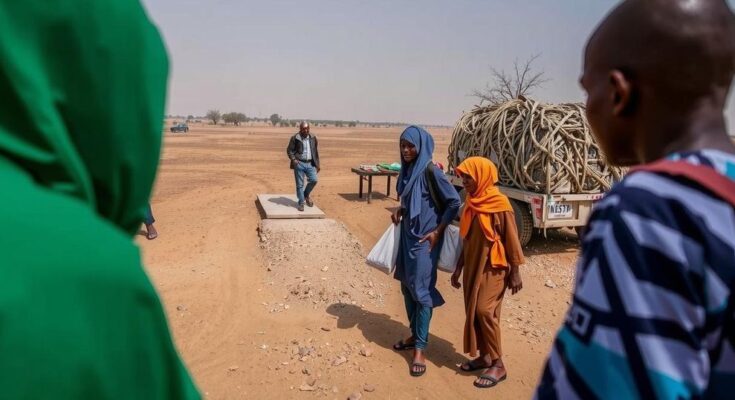Sudan has decided to keep the Adre border crossing with Chad open for an additional three months to facilitate essential humanitarian aid to the Darfur region, which is facing famine and displacement due to ongoing conflict. The U.N. has welcomed this development, affirming its impact on providing necessary relief to millions affected by the crisis.
The Sudanese military-controlled government recently announced its decision to keep the crucial Adre border crossing with Chad open to facilitate humanitarian aid to the conflict-affected Darfur region. This measure aims to address the dire humanitarian crisis exacerbated by ongoing violence, which has led to famine in certain areas, including the Zamzam displacement camp. U.N. representatives welcomed this initiative, emphasizing that it will allow for the continued delivery of essential relief supplies amidst escalating needs due to the conflict that has displaced millions since its outbreak in April 2023.
The ongoing conflict in Sudan began in mid-April 2023, fueled by tensions between military factions, resulting in widespread violence, particularly in Darfur. This war has led to over 24,000 fatalities and the largest displacement crisis globally, with more than 14 million individuals fleeing their homes. In response to the humanitarian needs arising from this situation, the U.N. and other aid organizations are reliant on border crossings like Adre to deliver food and medical supplies to affected populations. The situation is critical, with famine conditions confirmed in regions like North Darfur, highlighting the urgency for sustained humanitarian access.
The decision to extend the opening of the Adre crossing represents a significant step towards alleviating the humanitarian crisis in Darfur. With the continued support of the international community and streamlined processes for aid delivery, there is potential to mitigate the suffering of millions facing starvation. However, it is crucial that all parties involved ensure accessible routes for aid distribution to effectively respond to the growing demands from those in distress.
Original Source: www.independent.co.uk




